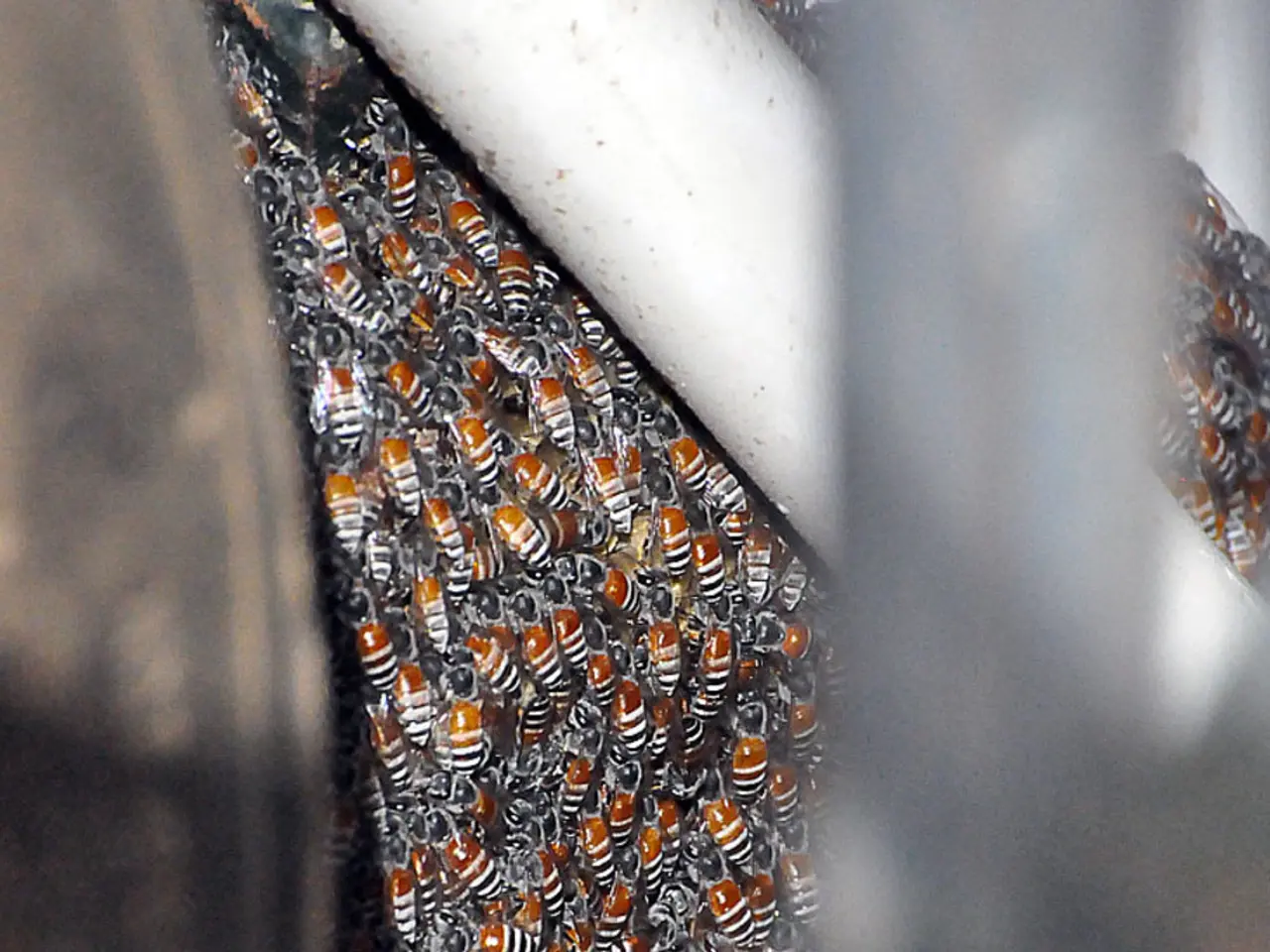Stinging Wasps and Allergic Reactions to Insecticides: Questions Answered on this Topic
Insect venom allergies can pose a significant health risk for some individuals, with symptoms ranging from mild skin reactions to severe, life-threatening anaphylaxis.
Symptoms of an insect venom allergy may include localized pain, redness, swelling, itching, and hives at or beyond the sting site. More serious allergic reactions can cause swelling of the lips, tongue, or throat; difficulty breathing; nausea; stomach pain; diarrhea; dizziness; confusion; rapid heartbeat; and low blood pressure. In the worst cases, a life-threatening reaction called anaphylaxis can occur, characterised by symptoms involving multiple body systems such as shortness of breath, widespread hives, fainting, and a feeling of impending doom.
Warning signs of severe allergic reaction or anaphylaxis include trouble breathing or shortness of breath, swelling of the face, tongue, lips, or throat, dizziness or fainting, rapid heartbeat, nausea, vomiting, or stomach cramps, hives or full-body rash. These signs require emergency medical attention and immediate treatment with epinephrine.
Treatment for normal mild reactions typically involves cleaning the sting area, applying cold packs to reduce pain and swelling, using topical creams such as calamine lotion or hydrocortisone, and taking oral antihistamines to control itching and allergic symptoms. These mild symptoms usually resolve within a few days.
For severe allergic reactions (anaphylaxis), immediate administration of epinephrine (e.g., via an EpiPen) is critical and life-saving. Emergency medical services should be called immediately, and people with known insect venom allergies are advised to carry epinephrine auto-injectors at all times. Additional treatment and monitoring in a hospital may be necessary.
Long-term management includes allergy testing to identify specific insect venom triggers and considering venom immunotherapy, which is a desensitization treatment that can reduce the risk of severe reactions. If successfully completed, this therapy can eliminate the need for an emergency kit.
To minimise the risk of stings, allergy sufferers should avoid walking barefoot or with open shoes over the meadow, not have breakfast outside in the summer, and not use perfumed cosmetics. Open drinks should be covered and consumed through a straw to avoid attracting wasps. Cyclists should wear close-fitting clothing and ensure that the vents in their cycling helmet are each provided with a net.
In summary, insect venom allergy symptoms range from localised skin irritation to systemic anaphylaxis, with warning signs prompting urgent medical care and treatments spanning antihistamines and epinephrine auto-injectors depending on severity. Specific immunotherapy can treat an insect venom allergy by gradually getting the immune system used to the insect venom, reducing the immune system’s reaction to it.
Individuals with insect venom allergies must be aware of chronic-conditions like chronic-kidney-disease and cancer, as these health-and-wellness issues may exacerbate the severity of allergic reactions. Fitness-and-exercise, such as regular cardiovascular health activities, can help strengthen the immune system, potentially reducing the risk of severe reactions. However, persons with skin-care concerns deriving from these allergies may need to be cautious with certain therapies-and-treatments, particularly those including CBD, which can interact with certain medications.
Moreover, managing mental-health is also crucial, as the anxiety and stress induced by the fear of venom allergies can increase the symptoms' intensity. Aside from seeking therapy, maintaining a calm and composed state of mind during encounters with possible allergens can lessen the body's reaction.
Additionally, prevention methods like avoiding insect-infested areas and taking necessary precautions while engaging in outdoor activities can decrease the likelihood of an adverse reaction. Equipping oneself with vital medical resources, such as an EpiPen, will serve as crucial support should an allergic reaction occur. Understanding the potential symptoms related to insect venom allergies and promptly reacting to them could be the difference between life and death.




